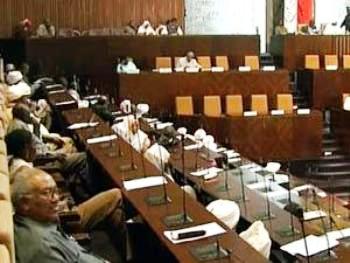Sudanese MP wary about endorsing move to lift fuel subsidies
June 28, 2013, (KHARTOUM) – A key member of Sudan’s national assembly said that they have yet to receive official document on a possible decision to lift fuel subsidies and warned that critical economic sectors would be affected negatively by such a decision.

Earlier this month, Sudan’s minister of finance Ali Mahmoud Abdel-Rasool urged the parliament to authorize gradual lifting of subsidies as a solution to curb inflation rates.
Last week, an informed source told Sudan Tribune that the Shura (consultative) council of the ruling National Congress Party (NCP) endorsed a proposal to further reduce fuel subsidies.
President Omer Hassan al-Bashir hinted to the move in his speech before the council saying that subsidies on fuel and electricity benefit the rich for the most part.
“Any family with more than a single vehicle gets more subsidies than the salary of the Deputy Minister,” Bashir said.
MP Tom pointed out that such a move would increase the cost of production and makes Sudan’s exports less competitive in the global market and will also raise the US dollar exchange rate and inflation.
He further added that the government should instead work on controlling the exchange rate.
The lawmaker called on the government to prepare a thorough study on the decision prior to implementing it, demanding more cuts in government spending and boosting support for the productive sectors.
Following the independence of South Sudan in July 2011, Khartoum was forced to introduce a contractionary budget that saw the partial lifting of fuel and food subsidies which triggered rare but small demonstrations across the country.
The government defended the measures saying that the country can no longer afford to pay for these subsidies after losing 75% of the oil reserves that are now in South Sudan territory.
(ST)
